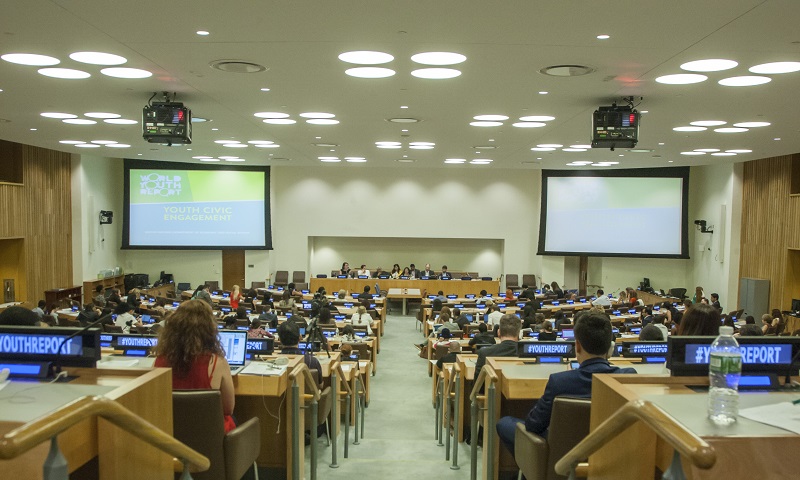
Youth trust in political and economic institutions has declined, which is seriously affecting their participation in community life. Globally, youth have been disengaging from civic life. Over 73 million young people are unemployed, with many working in the informal sector who are underemployed. Though interest in political life has been increasing among youth, participation in civic life through voting and activism are also in decline. When youth disengage from civic life, it could have negative consequences on addressing social inclusion, inequality and even the gender gap. What should policymakers do to re-engage with young people?
The United Nations’ 2016 World Youth Report was launched at an event held on 15 July at UN Headquarters in New York, alongside the 2016 High Level Political Forum on Sustainable Development. The report provides a tool to promote and inform policy dialogue and discussion between young people and governments. A panel of UN representatives and experts, moderated by UNDESA DSPD Director Daniela Bas, discussed some of the most significant issues highlighted in the report such as accessibility for youth with disabilities, internships and precarious work as well as the need to focus on young women when it comes to inequality and violence.
Assistant Secretary General of UN DESA, Lenni Montiel, officially launched the report and spoke about the need to overcome economic and political issues that prevent youth from engagement opportunities. Issues related to skills and education, labour rights and inequality hamper youth economic engagement which then turns young people off from civic life. But youth alone cannot resolve these issues; governments and civil society need to work with young people to find solutions to improve engagement processes.
The panelists weighed in on best practices for increasing youth civic engagement. American Paralympic record holder Kristin Duquette spoke about the inclusionary potential of sports, particularly when it comes to engaging youth with disabilities, following the mantra “If I can see one, I can be one”. Celebrating sports with young, disabled athletes bring them to the fore of mainstream society and increases the visibility of their community. Sporting events like the Paralympics provide an opportunity and space for young persons with disabilities to engage with civic life.
Internships and precarious work also need to be addressed in order for youth to re-engage in civic life, according to Ross Perlin, author of the book Intern Nation. The economic status of young people cannot be improved and economic growth cannot happen until young people are able to receive decent work, whether through changes in skills and education programs that fill labour market gaps, wealth re-distribution through labour or the recognition of wages laws. Mr. Perlin urged young people to become politically active and to get organised to realise the goal of decent work through employers and public administrators.
Erhardt Graeff, a PhD researcher at MIT’s Center for Civic Media, talked about the potential of social media to re-engaging youth in political life. Youth real-world participation in politics has faced serious decline in recent years, but youth-oriented political issues from support for same-sex marriage to democratic empowerment have seen change through social media tools at the national and global levels. To better engage young people, governments need to recognize the wide-use of social media tools to capture the political energy youth express through these networks.
Read the 2016 World Youth Report.
Learn more about our work on youth at social.un.org/youth
Source & Copyright: UNDESA DSPD
 Welcome to the United Nations
Welcome to the United Nations